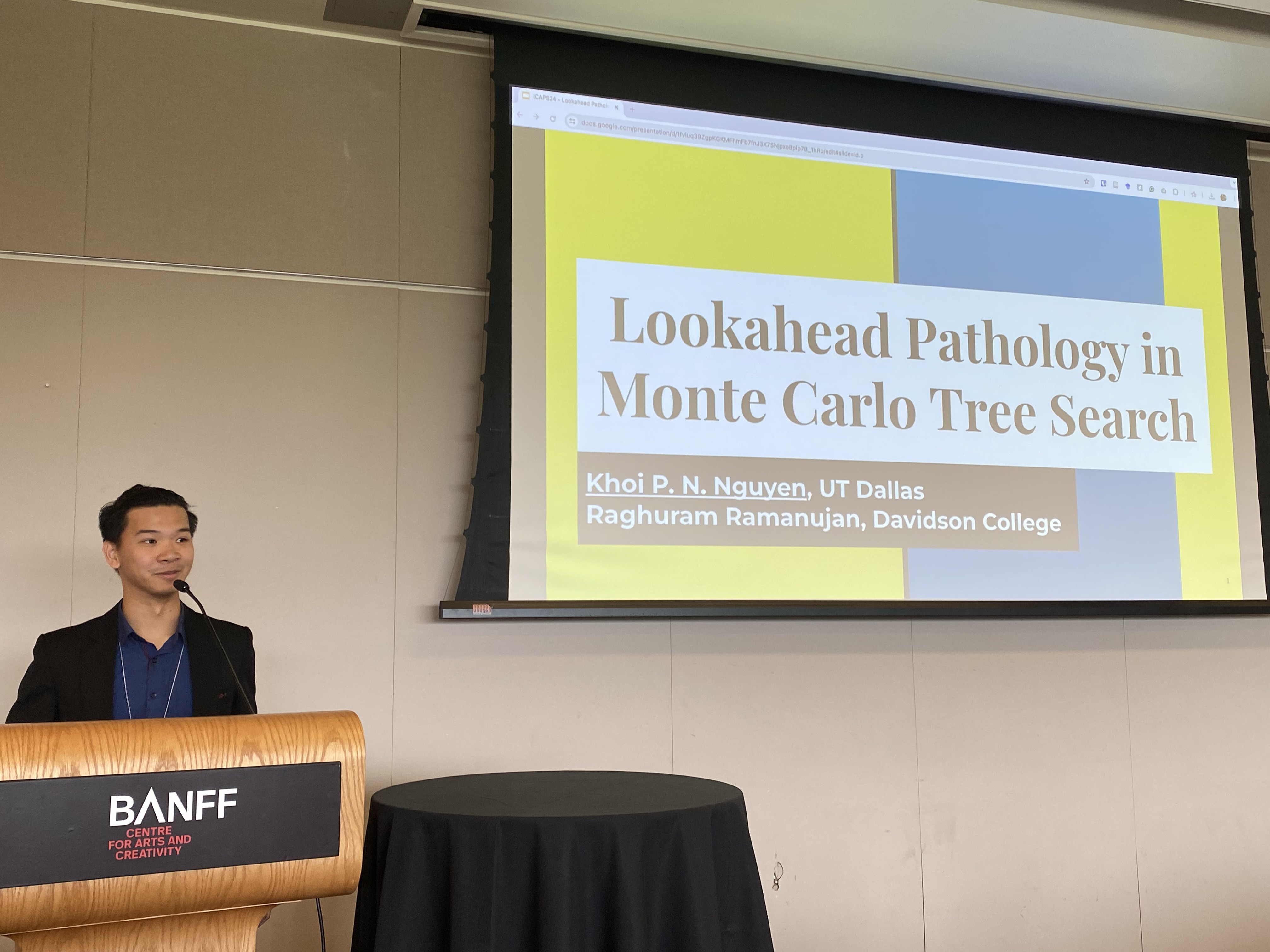Talk at ICAPS
I have just had one of the best experiences in my academic career so far – giving a talk at the main conference of ICAPS 2024 (in Banff, Alberta, Canada). Because of its significance, I am going to record the experience here to help me and maybe someone else reproduce the success I had there.
Why such a big deal?
Let’s first understand the significance of the context, and how much pressure it put on a presenter:
- ICAPS is the flagship conference for planning research. Flagship means the best. Planning is the core of symbolic AI, which is the counterpart to machine learning and deep learning – it is an important field in AI.
- My talk was at the main conference, which is the most competitive track (compared to workshops) to get in. It is the main event of the conference.
- My audience was about 50 researchers who are the best in the field. I had Nathan Sturtevant (ICAPS24 conference chair) on the front row and Wheeler Ruml (ICAPS26 conference chair) on the second row. I also had a huge support of about 10 excellent PhD friends that I knew during the ICAPS summer school.
As such, for the sake of my academic reputation, I really should not mess up such a talk.
The preparation
The story of getting the paper accepted was a long story that has been told.
About one month before the conference, I told my advisor that I am willing to prepare the slides and give the talk myself.
I originally made a mistake of making the slides in Beamer (Latex) because I thought that is the most professional way to make a technical slide deck. But my advisor told me beamer doesn’t equal professionalism. Google Slides and Powerpoint do it just fine, and those are actually what my advisor has been using during his career. For talks that don’t have much math, these tools allow much faster editting. So, the moral is: you don’t have to look fancy to be professional.
To prepare for the actual talk, I rehearsed 5 times. Improvements were seen after each time:
- Untimed, with my advisor: Just to get feedback on the contents on the slides
- Timed, with my advisor, and I went 10 mins over time: My advisor really pointed out that I “wasn’t sure of what to say” in each slide, and I should “tighten it up”. These are great vocabularies for presentation prep.
- Timed, mumbling to myself, after fixing the slides a lot: because I don’t want to embarass myself in front my advisor much more.
- Timed, in front of my advisor: I was on time, and got applauded by him when I ended it. Still got a few minor suggestions.
- Timed, in front of summer school friends1: I got clapped from them and a lot of quality feedback. This rehearsal was particularly good because my friends are a better proxy to the real audience than my advisor because they are less familiar with the topic.
And just like that, I was ready to present. I was so confident that even went to drink beer, sing, and dance in a bar the night before my talk.
The actual talk

That morning, I came to the conference dressed up. I unnecessarily borrowed an HDMI cable even though the conference already prepared it for me, just because I want to be responsible for the talk’s smoothness, which was taught to me by Dr. Son Van.
Before me, Dr. Nathan Sturtevant and other people gave talks. I caught less than 10% of what they said.
When it came to my talk, there was the first 15 seconds of cable issue. I was worried, but it turned out that I just needed to wait for a few seconds for it to work instead of repeatedly plugging and unplugging.
The actual talk went by like a breeze. I did what I practiced for. I got loud claps, 3 back-to-back questions, an it-was-really-good whisper with eye brow raised from the session chair, a lot of compliments from friends and strangers afterwards, and 3 offline follow-up discussions from other researchers! It was a huge success! So, I am allowing myself to be proud of it.
-
The group has an official name – P13, which stands for Probably Purely Pleasant Peer Pressure Partial-Panic Pre-Presentation Preparation Plus-Plus Party. This name shows how fun the planning folks are. ↩